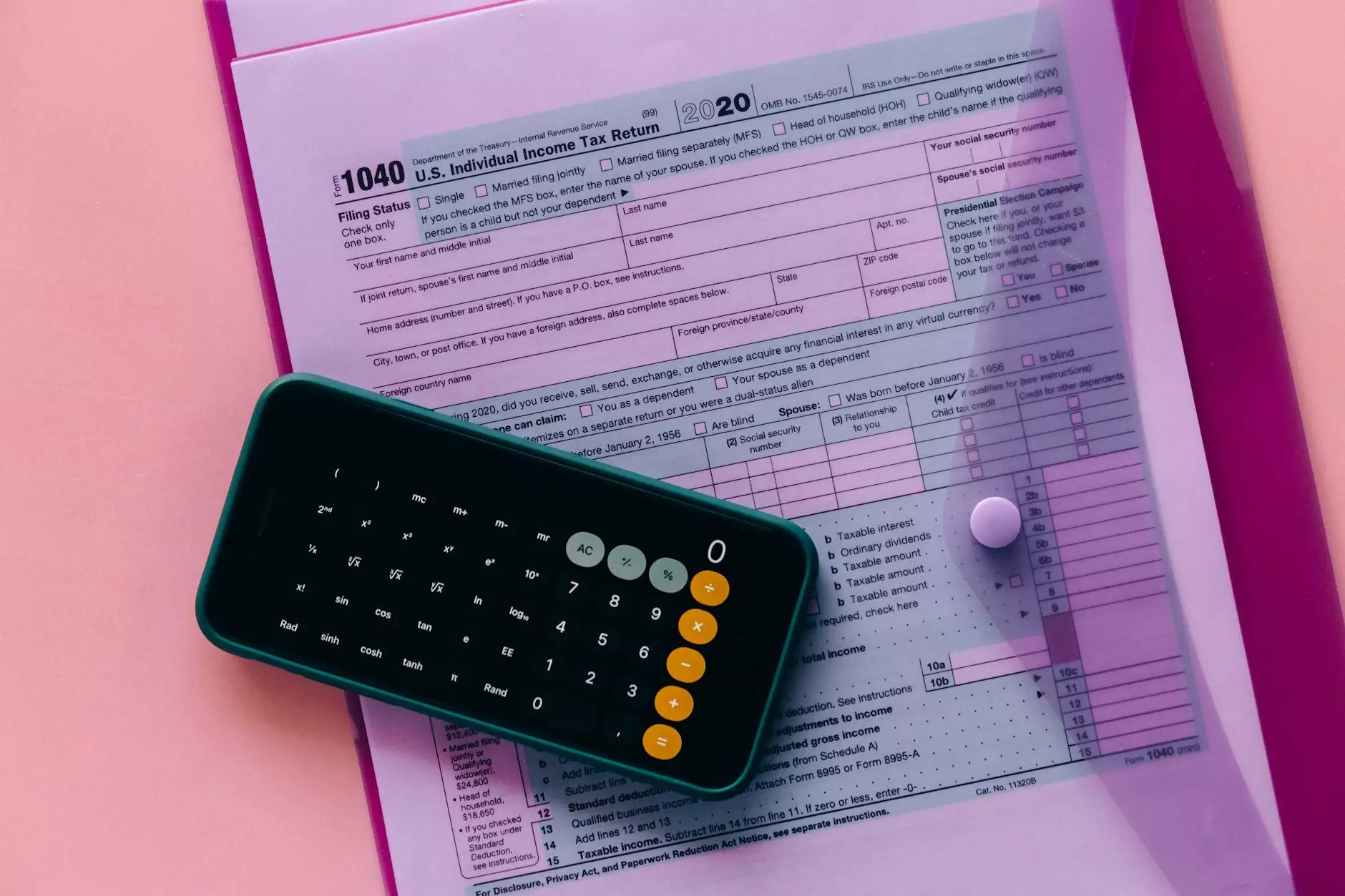How Long to Save Tax Records: A Comprehensive Guide for Businesses

Understanding the importance of saving tax records is crucial for any business entity. These documents serve as proof of income, tax deductions, and expenses which can significantly affect your business's financial health. In this article, we will explore the timeline for saving tax records, the types of records to keep, and the best practices for maintaining your financial documentation.
The Importance of Tax Records
Tax records are not merely sheets of paper; they are the backbone of your financial reporting and compliance efforts. The Internal Revenue Service (IRS) strongly recommends maintaining records that substantiate your income and deductions. This is vital for various reasons:
- Proof of Income: Tax records validate your reported income.
- Deductions and Credits: They support your claims for deductions and tax credits.
- Audits: In case of an audit, having organized and accessible tax records can simplify the process and protect your business.
- Financial Planning: Accurate historical records are essential for effective financial forecasting and planning.
How Long to Save Tax Records
The question of how long to save tax records is a common one among business owners. The length of time you need to keep your records depends on various factors, including the type of tax records and the nature of your business activities.
General Guidelines
According to the IRS, here are some general guidelines for how long to keep your records:
- Three Years: Generally, keep records for at least three years after you file your tax return. This duration is applicable if you report income accurately and do not have any special circumstances.
- Six Years: If you underreport your income by more than 25%, the IRS may evaluate your taxes for up to six years. Therefore, maintaining your records for this duration can be crucial.
- Seven Years: If you claim a deduction for a bad debt or worthless securities, keep those records for seven years.
- Indefinitely: If you do not file a return or if you file a fraudulent return, it’s advised to keep records indefinitely. Additionally, keep copies of your tax returns and any supporting documents forever, as they may be needed for future reference.
Types of Tax Records to Keep
Understanding which specific records to save is just as important as knowing the duration. Below are key types of tax records every business should maintain:
Income Records
These include all documentation that proves your business income. Maintain records such as:
- Sales records
- Invoices
- Bank statements
- Investment income documents
Expense Records
Documenting your business expenses is equally important for claiming deductions. Important records include:
- Receipts
- Bank statements for business accounts
- Credit card statements
- Payroll and employee payment records
Tax Returns
You should keep copies of your filed tax returns as well as any correspondence with the IRS. This documentation is vital for any future audits or disputes.
Best Practices for Storing Tax Records
Having a solid plan for storing tax records can save you considerable time and hassle in the long run. Here are some best practices:
- Go Digital: Digitizing documents can help in organizing, searching, and retrieving records efficiently. Utilize reliable cloud storage solutions for safety and accessibility.
- Keep It Organized: Organize your tax records by year and category. Make use of file folders, labels, and digital tags to categorize your documents systematically.
- Regular Audits: Schedule periodic reviews of your records to ensure everything is current and in order. This can also help in identifying any missing documentation.
- Backup Everything: Always create backups of your important documents. Employ external drives and cloud storage for redundancy.
The Impact of Not Saving Tax Records
Neglecting to save tax records can have serious consequences for your business. Some potential risks include:
- Audits: Inadequate records may lead to issues during an IRS audit, leading to potential fines and back taxes.
- Loss of Deductions: You may lose out on eligible tax deductions without sufficient documentation.
- Legal Issues: Incomplete records can lead to legal challenges regarding ownership or financial transactions.
When to Consult a Tax Professional
Determining how long to save tax records can sometimes be complicated. If you are unsure about specific situations or have unique business needs, it’s wise to consult a certified accountant or tax professional. They can offer guidance tailored to your business's specific circumstances.
Conclusion
In conclusion, understanding how long to save tax records is essential for every business owner. By following the guidelines outlined above and maintaining accurate records, you will not only ensure compliance but also set the foundation for financial success. Remember, when in doubt, consult with professionals to safeguard your business’s future.
For expert advice and comprehensive tax services, visit taxaccountantidm.com.



